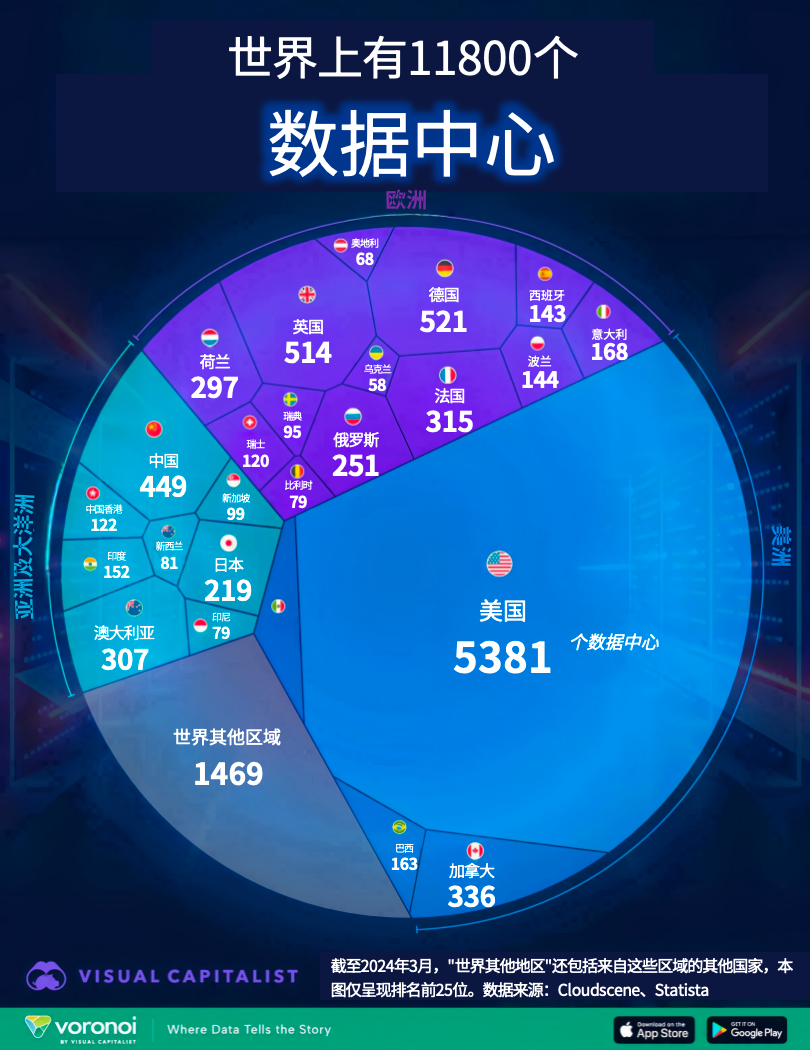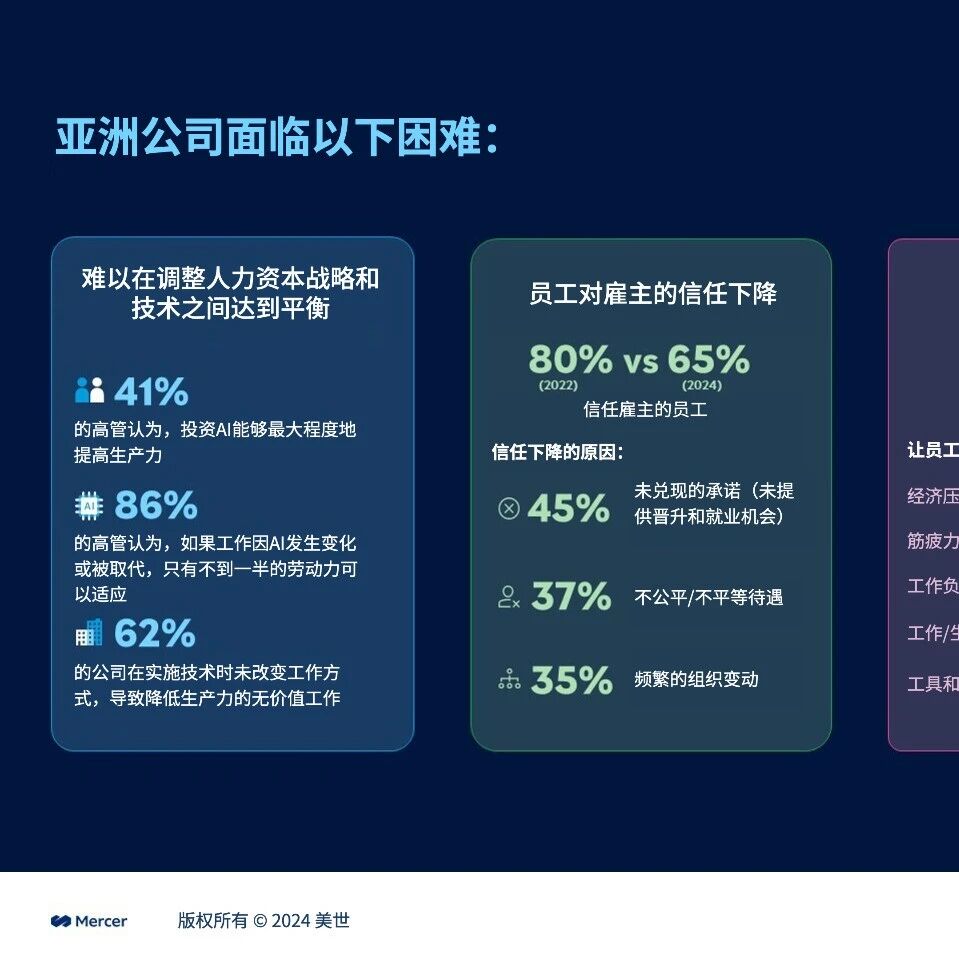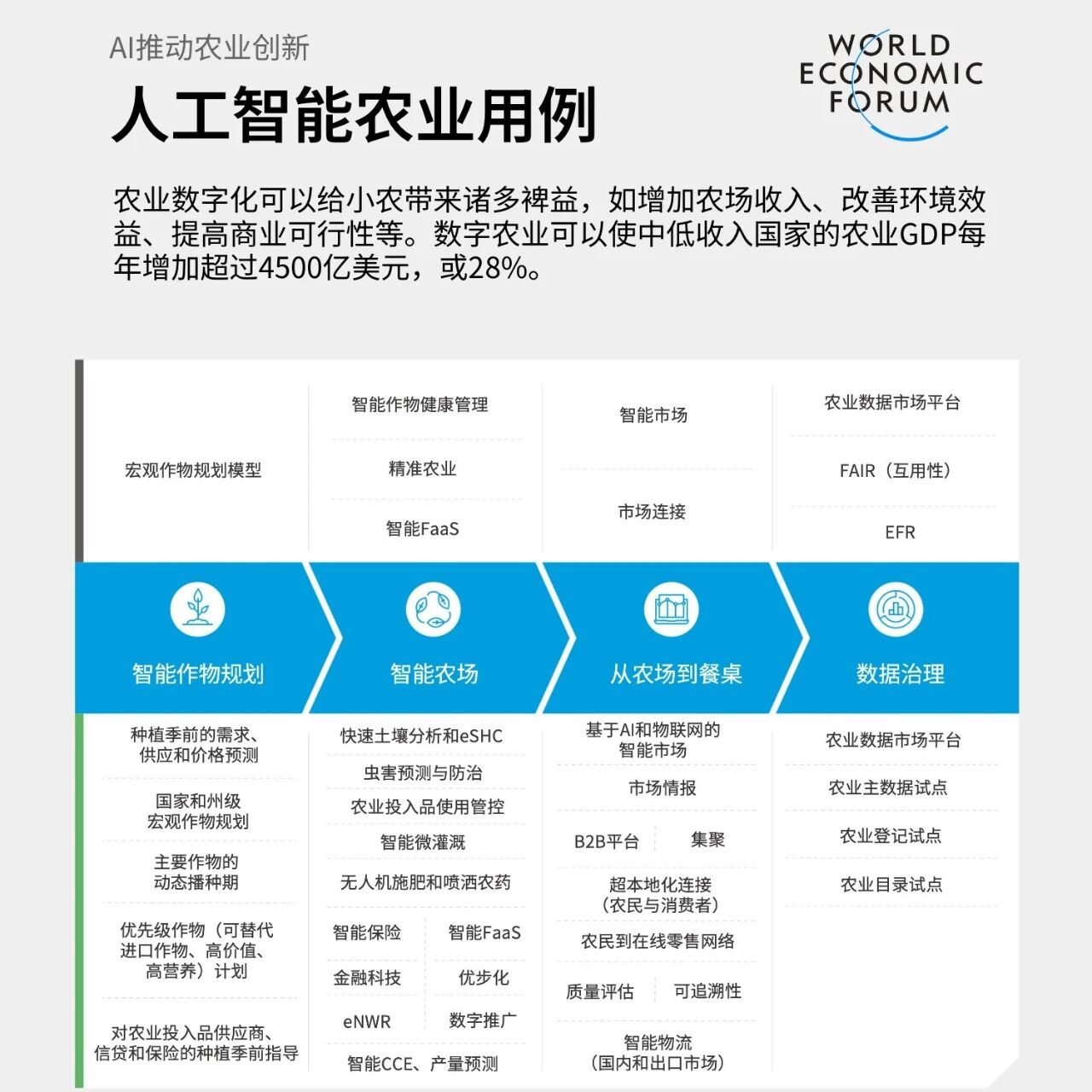

An employee at a data center in Kazakhstan.
Image source:Reuters/Pavel Mikheyev
Khalid Alaamer
Head of Digital Trade and Artificial Intelligence at the World Economic Forum
Driven by the surge in demand fueled by artificial intelligence, data centers around the globe are popping up like mushrooms after a rain.
They are not just digital infrastructure—they are also high-value investment assets.
However, energy consumption, regulatory complexities, and geopolitical tensions are emerging as potential obstacles to the industry's future growth.
If you’re reading this article, those words have just traveled—via thousands of kilometers of fiber optic cables or undersea cables—from a data center on the other side of the planet to right before your eyes, in mere fractions of a second. Whether you’re watching a movie, accessing cloud storage, or chatting with AI, your data is constantly being processed by massive, energy-hungry "digital warehouses."()
,,,,
?
,“”——,
,,,13,,
,,,,
,,2427.2,2032,5840Meta,
,95%,,

Image source:Visual Capitalist
,45%,——“”,
,,
AI,,GPT-4170,160,GPU
,AI,RainierMeta100,,
,,,,(FDI)
?,,,AI,,,
,,
,1–1.5% of global electricity consumption,As AI and cloud services become more widespread, this ratio is expected to rise significantly. While hyperscale operators are increasingly investing in renewable energy and innovative cooling technologies—such as liquid cooling and waterless systems—the pressure from regulators and local governments nationwide is also growing, pushing for long-term sustainability and carbon neutrality. In some regions, new data center approvals have even been temporarily halted due to grid capacity constraints or environmental concerns.
Regulatory complexity is also a major challenge.Growing demands for data sovereignty and restrictions on cross-border data flows (e.g.,The EU's General Data Protection RegulationOrChina's Cybersecurity Law, enablingThe world has developed a highly fragmented regulatory landscape. This forces companies to localize data processing, driving up costs and creating "data silos," which in turn limits their ability to leverage more efficient, lower-cost global data centers.
Additionally, administrative barriers can also slow down the pace of investment—lengthy permitting processes, stringent review systems, and unpredictable foreign-investment regulations all contribute to heightened uncertainty in industry development.
Meanwhile, the data center industry is increasingly becoming a flashpoint in geopolitical tensions. Access to critical components such as supercomputing chips, optical fibers, and advanced computing hardware has emerged as a strategic national issue tied to trade security—now further exacerbated by export controls, industrial policies, and supply-chain disruptions.
Therefore, despite the ongoing surge in global demand for data centers, the obstacles to their large-scale construction and operation are becoming increasingly complex. This urgently calls for smarter, more coordinated policy responses to ensure that countries can fully unlock their economic potential.
Join the conversation
The World Economic Forum has long served as a public-private collaboration platform and deeply understandsTo tackle complex global challenges, we need the right talents working together.That’s why we’re bringing together thought leaders, policymakers, and investment firms from across the entire data center industry chain to jointly build a "goal-oriented community."
This community aims to create a collaborative space where the public and private sectors can engage in meaningful dialogue on trade, investment, and regulatory issues related to data infrastructure. By identifying key challenges, sharing practical solutions, and jointly shaping a supportive policy environment, we hope to drive the sustainable growth of the data center industry.
If you’re involved in technology, infrastructure, policy, or investment related to data centers, we’d love for you to join the conversation and help shape the future of digital infrastructure together.

The above content solely represents the author's personal views.This article is translated from the World Economic Forum's Agenda blog; the Chinese version is for reference purposes only.Feel free to share this in your WeChat Moments; please leave a comment at the end of the article or on our official account if you’d like to republish.
Editor: Wan Ruxin
The World Economic Forum is an independent and neutral platform dedicated to bringing together diverse perspectives to discuss critical global, regional, and industry-specific issues.
Follow us on Weibo, WeChat Video Channels, Douyin, and Xiaohongshu!
"World Economic Forum"


